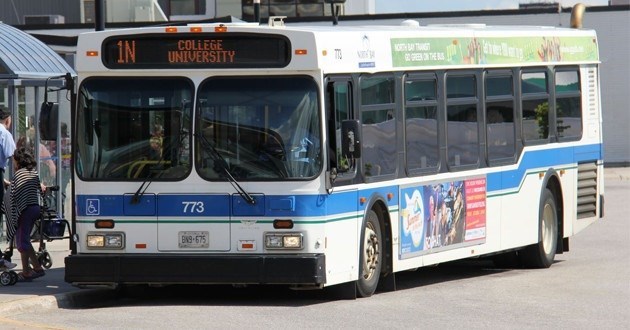This is one in a series of articles in the feature called "The Front Line" that takes a look at those local people working on the forefront during the COVID crisis and beyond. This time we speak to a city transit driver.
Greg Loach has been with North Bay transit for eight years and says he's always enjoyed his job.
He still enjoys it but acknowledges it's been a lot different over the past couple of months. He took the time to tell us how bus drivers have had to adapt to the COVID climate.
"The biggest thing I miss is the people, the personal and professional touch. I miss getting to see them face to face and wishing them good morning. I miss saying hello to the regulars, and the ones who take the time to interact with you every day," says Loach.
He's referring to the fact that early on in the COVID pandemic, city staff had to change how transit operated to ensure the safety of drivers as well as passengers. To ensure social distancing, the driver's areas were cordoned off with tape, and there was no more boarding by the front doors. That meant rear door entry only, and that meant transit no longer charged for its services these past many weeks.
Only now, in mid-June, has the city decided to begin going with Plexi-protection shields for drivers, and reverting back to a paid payment system, with the return to passengers boarding by the front door.
What else does Loach miss? "I miss helping others more. I used to be able to assist the elderly, or help someone with a wheelchair, but since COVID that hasn't been a part of it."
In addition to new rules limiting the number of passengers, as well as tweaks to the routes and schedules, Loach says sanitization has become a much larger part of the job.
Cleaning buses was always an important part of the job, but now it has become a vital core mandate of what they do. Buses used to be rotated in and out of service once or twice a day, and now he says they are switched as soon as every two hours.
He and his colleagues are also doing much more wiping down and cleaning up. "We used to use vinegar and water, now it's a bleach-based solution," he adds.
They are wiping down surfaces many times a day and Loach says one of the things he notices is his hands. "With all of the changes, my hands are drying out from all if the hand sanitization we do every day."
One thing that hasn't changed for Loach is what he gets out of his work.
"People have always relied on us, but in these past weeks there's absolutely been a sense of pride in getting those front line workers to where they need to be."



